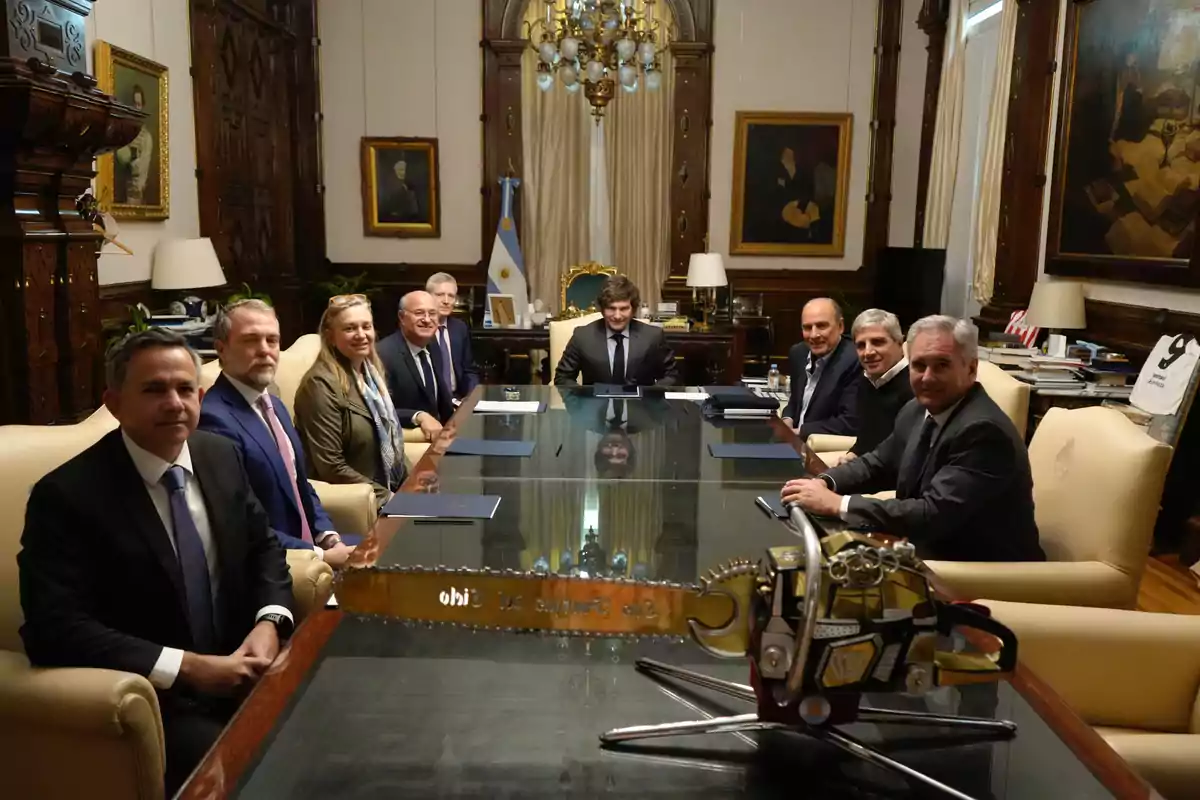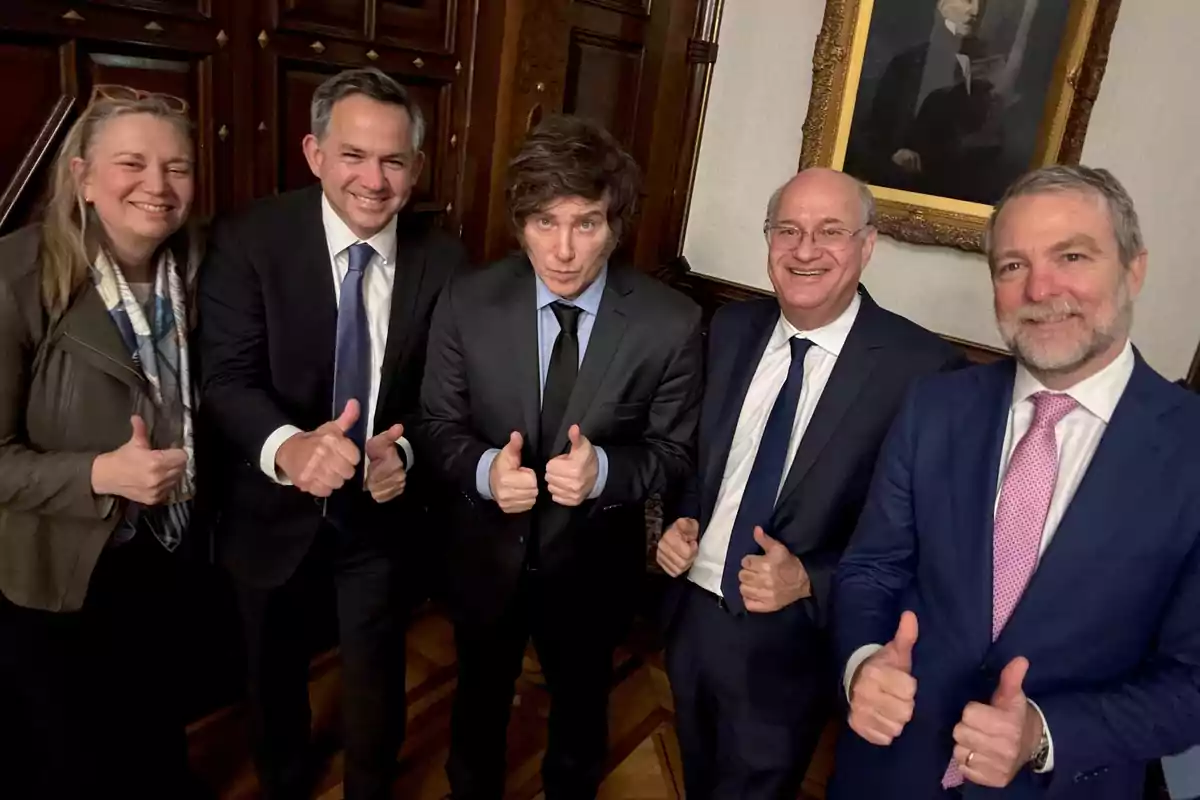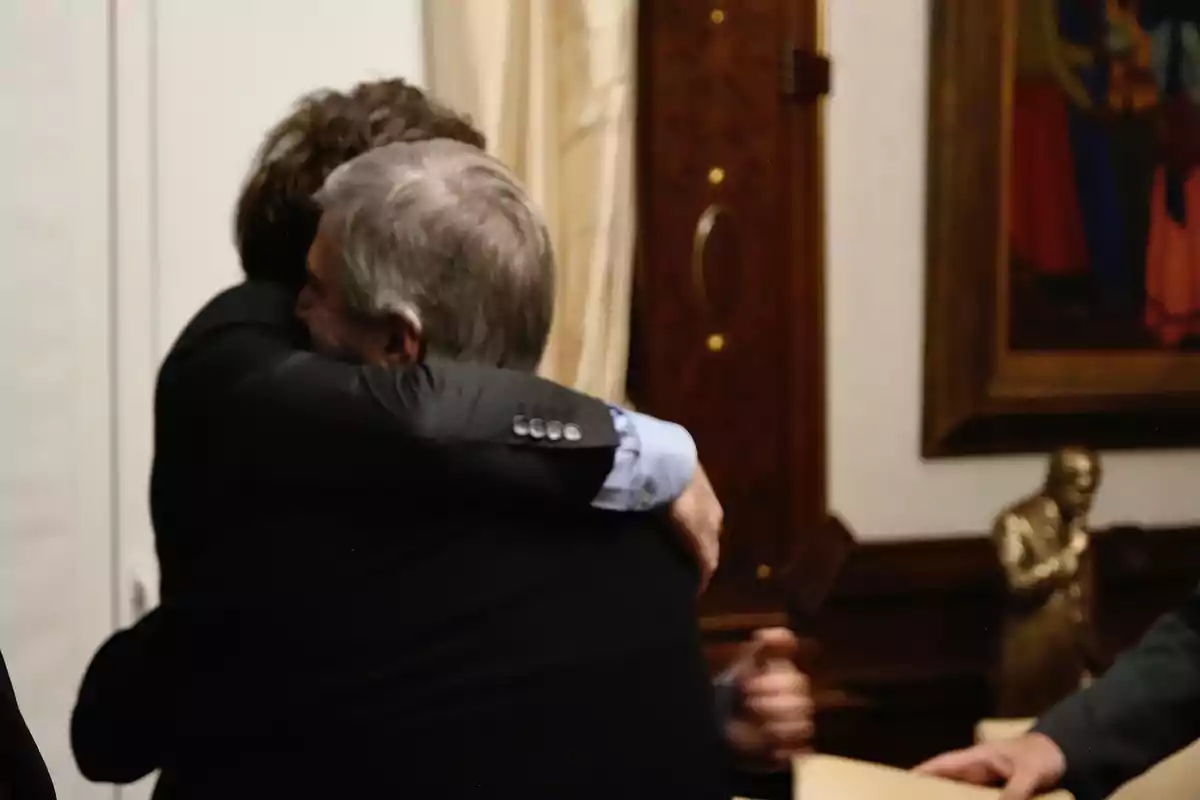
The IDB president met with Milei and reaffirmed his support for the national government.
In addition to the meeting, Chief of Staff Guillermo Francos and José Luis Daza also participated
"Excellent meeting with President @JMilei, Minister @LuisCaputoAR, and Secretary @PabloQuirno at Casa Rosada. We discussed Argentina's economic reform agenda, the boost to the private sector, the security agenda, and the country's integration into the region and the world. We also addressed the new Country Strategy 2025-2028 of Grupo @el_BID. We are committed to continuing to support the country. Thank you for receiving us!", stated Ilan Goldfajn, president of the Inter-American Development Bank (IDB), after the meeting with Argentina's top authorities.
President Javier Milei and Minister of Economy, Luis Caputo, received this Monday at Casa Rosada the head of the Inter-American Development Bank (IDB), Ilan Goldfajn, along with other authorities of the institution.

The meeting, which took place between 11:30 a.m. and 1:00 p.m., had been previously scheduled as part of the head of the organization's visit to Argentina and was framed within the review of ongoing credit operations. However, the meeting took on greater significance due to the political and economic context caused after the recent electoral result in Buenos Aires province.
The return of Peronism to the center of the Buenos Aires political scene, with a result higher than what consulting firms had estimated, had a direct impact on financial variables. The reaction was immediate: the official dollar opened the day at $1390 for buying and $1450for selling on Banco Nación's screens, marking an increase of $70 compared to the previous close. At the same time, shares of Argentine companies listed on Wall Street recorded sharp declines of over 20%. Banco Macro fell by 20.40%, BBVA by 19.91%, and Banco Supervielle by 18.85%.
Meanwhile, Argentine bonds began the session with losses of up to 11%. Country risk also reflected the nervousness, standing at 901 basis points.
This market reaction, in line with what has happened on other occasions when Kirchnerism managed to prevail, reinforces the perception of distrust toward a political sector associated with corruption, lack of transparency, and discretionary management of public resources. The market, in this sense, acts as a thermometer that anticipates the effects of a possible scenario of Peronism's return to national power.

In addition to Milei and Caputo, Chief of Cabinet Guillermo Francos and Secretary of Economic Policy José Luis Daza participated in the meeting. According to official information, the meeting was part of the IDB's regular agenda in the country and was aimed at reviewing the status of current financing operations.
Nevertheless, its coincidence with the financial turmoil accentuated by Kirchnerism's electoral victory in Buenos Aires underscored the political importance of the moment.
The national government seeks to convey predictability amid a scenario in which markets have already given clear signals: every time Peronism gains ground, uncertainty grows.
The drop in shares, the jump in the dollar, and the increase in country risk are the immediate response of an economic system that, as has been repeatedly seen, distrusts those who in the past led the country into deep crises.
More posts: